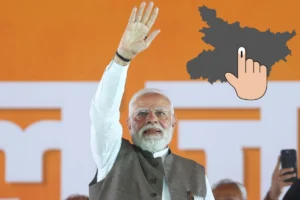
The Adani Group is developing the largest green energy park in the world, spanning 726 square kilometers, in Gujarat’s Rann of Kutch desert.
Group Chairman Gautam Adani stated that 30 GW would be produced, enough to power more than 20 million homes, in a post on X.
Proud to play a crucial role in India's impressive strides in renewable energy as we build the world's largest green energy park. This monumental project, covering 726 sq km in the challenging Rann desert, is visible even from space. We will generate 30GW to power over 20 million… pic.twitter.com/FMIe8ln7Gn
— Gautam Adani (@gautam_adani) December 7, 2023
“Proud to play a crucial role in India’s impressive strides in renewable energy as we build the world’s largest green energy park. This monumental project, covering 726 sq km in the challenging Rann desert, is visible even from space. We will generate 30 GW to power over 20 million homes,” said the Gautam Adani post.
Also read: Energy Minister Conducts Inspection of Jawaharpur Thermal Power Plant in Etah
Additionally, we are building one of the largest and most integrated solar and wind energy manufacturing ecosystems in the world in our karmabhoomi Mundra, which is only 150 km away. This is a major turning point in India’s transition to sustainable energy and demonstrates our dedication to the Solar Alliance and the Atmanirbhar Bharat programme.”
The X post and the group chairman released a few images showing the ongoing large-scale project coming to life.
Along with aiding India in fulfilling its climate action commitments made at COP, the Adani Group project is anticipated to increase India’s capacity for producing green energy.
Also read: Energy Minister Conducts Inspection of Jawaharpur Thermal Power Plant in Etah
During COP26 in 2021, India made a bold five-part “Panchamrit” pledge. Achieving 500 GW of non-fossil electricity capacity, producing half of the energy needed from renewable sources, and cutting emissions by one billion tonnes by 2030 were among them.
India also wants to cut its GDP’s emissions intensity by 45%. India finally pledges to achieve net-zero emissions by 2070.
To read more such news, download Bharat Express news apps



















